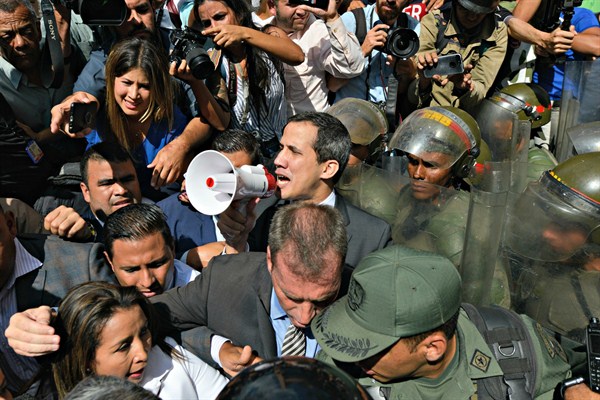Among the many glaring pieces of unfinished business on President Donald Trump’s foreign policy ledger is Venezuela, where his campaign of “maximum pressure” on President Nicolas Maduro has failed. Venezuelans are preparing to mark the anniversary this month of a policy to oust Maduro that Trump launched with great fanfare and to high expectations nearly a year ago, when he declared Maduro’s presidency “illegitimate” and recognized opposition leader Juan Guaido as Venezuela’s legitimate, interim president. At the time, Trump vowed to restore Venezuelan democracy, declaring that “all options are on the table.”
Yet in a sign of where things now stand in Venezuela, Maduro this week tried to seize the last remaining democratic institution in the country. Security forces and his supporters blocked opposition legislators from entering the National Assembly building, where they were set to reelect Guaido as the head of the legislature. The dramatic standoff led to a rival lawmaker, dissident opposition member Luis Parra, declaring himself head of the National Assembly, with the backing of Maduro and his party.
It was another blow to a U.S. policy that has so far failed to dislodge Maduro. Now that Trump’s plate is overflowing—from Iran, after Trump’s decision to kill top general Qassem Soleimani; to North Korea, where nuclear talks with Kim Jong Un have gone nowhere; to Washington, where Trump’s impeachment trial looms in the Senate—Venezuelan opposition members and their supporters worry he will completely lose interest in them. Despite stiff competition, however, a closer look strongly suggests that Trump’s attention will again turn to Caracas this year.

